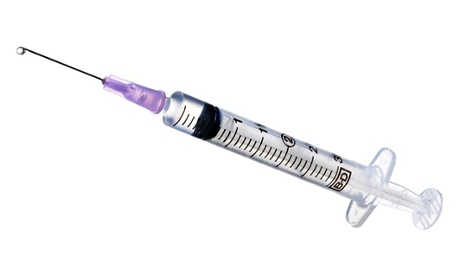
In the 20-minute drive to the hospital with my one-year-old in my arms, I was mentally preparing for a fight. I was not going to be kept waiting; she needed to be seen quickly. She was fading fast. Maybe I was going to have to make a fuss. The tiny purple pinpricks were turning into spots, then blotches, in front of my eyes. I didn’t even want to think the word meningitis. Like most people, I had never seen the speed at which septicaemia, the thing that kills, actually subsumes a tiny body.
When I got to reception at A&E, I held her up to the desk. “Run,” they said. “Run.” A nurse ran alongside me and bells were ringing. Within two minutes my baby was surrounded by four doctors. Sometimes when I have to wait in A&E, perhaps because I have sprained my ankle, I think of that time – how, when it’s touch-and-go, the staff may actually be otherwise engaged.
As she was too tiny and too ill for them to find a vein, they slammed needles into her shin bone and cut holes in her chest and neck to put in lines. “Look away,” they kept telling me, but I couldn’t. They offered us a priest. Not for me the ghouls who hang around hospitals. Instead, I watched them work all day for hours and hours. Two other medics arrived – a specialist mobile team from St Mary’s in Paddington to stabilise her. St Mary’s has brought the mortality rates for meningitis B down dramatically, as well as being at the forefront of research. Even all those years ago, in the lonely hours between 2am and 4am, when the life-support machines were beeping, young researchers came and asked if they could do more tests. They wanted a vaccine and were getting nearer to finding one.
The Cubans, it was rumoured, already had one – and a year or so ago I read that the NHS had been recommended to make available the lifesaving immunisation that GlaxoSmithKline had developed. I was delighted, of course. Vaccinations for the less serious meningitis C are already standard.
Since my daughter fell ill I have met and corresponded with many survivors of meningitis B, quite astonishing people who, after losing limbs, have gone on to lead full and extraordinary lives. But I have also met people whose children did not survive. When Jeremy Hunt tells us that he is in negotiations with the drug company to find a price that is acceptable before the NHS can roll out the vaccine nationally (it is, of course, available privately for £75), I think three things.
The first is this, and it is obviously emotional. If you have sat in a room where a doctor explains to you the odds on the outcomes for your baby, the worst being death, the next amputation of all limbs, then the loss of “just toes and fingers”, then brain damage with profound hearing loss being possibly the best hope, then yes, you think: if we have a way to stop this, we should move heaven and earth to do so.
Second, and maybe not so emotional, is that this is actually the market in all its gloriously free form. It is a choice. The market can charge what it likes for vaccinations against meningitis, as it will do for Ebola or malaria if these are developed. Cancer drugs, retrovirals, the new anti-rheumotoids: they are all expensive. There is something utterly immoral about the market holding not just the NHS to ransom, but the sick and the suffering around the globe. These untramelled market forces must be challenged.
Third, the anti-vaxxers currently gearing up in the US are not only anti-science but selfishly antisocial. We vaccinate our children not just to save our own precious kids but to rid entire communities of disease. Meningitis is an odd one, as many of us carry the bacteria anyway and we are not quite sure how it travels. But it is the illness, quite rightly, that parents most fear.
The doctors who worked ceaselessly to find a vaccine helped to save my daughter’s life. Apart from her obsession with ET – where ET is dying and then miraculously comes alive again – there have been no lasting effects. But the other baby in the ward with meningitis B was a few months older and even more ill. He had three cardiac arrests in a week. When I went to get some tea I saw his dad with another man smoking outside and I knew. This little boy’s mother threw her arms around me as I walked back on to the ward. Their baby was dead.
She put his toys on my daughter’s bed and said with an incredible grace in grief that still knocks me sideways: “Now darling you must fight for yours.” I was in awe.
So to think that there is a vaccine to stop another family going through that, but we are haggling over the price, is unbearable to me. I kept those toys but they break me up, so I don’t look at them. Her words, and her child, I will never forget.

